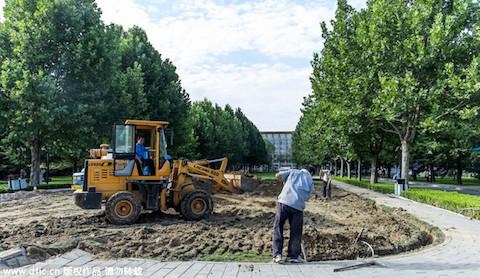Power struggles in the Chinese Communist Party are never actually acknowledged by the Party. But they often play out in full view of the public, for those with the eyes to see.
Before the Tiananmen Square massacre in 1989, for example, two factions battled furiously, all the while denying it to the public. The gift by an aide to then-General Secretary Zhao Ziyang of a VHS television program given to the late Singaporean leader Lee Kuan Yew communicated Zhao’s political stance. Such coded signalling can easily be missed by outsiders. In the end the hard-liners won, and students were massacred on June 4.
A similar process is taking place at the highest levels of the Communist Party now, with Party leader Xi Jinping facing down his long-standing political rival Jiang Zemin. Jiang was the head of the Party from 1989 to 2002, but he retained a powerful influence for another decade, under the reign of Hu Jintao, through a vast network of cronies whom he had appointed.
Jiang’s political hallmark is the massive persecution of the Falun Gong spiritual practice that he launched in 1999. The discipline, a traditional Chinese cultivation practice that teaches meditation and moral principles, had attracted around 100 million adherents by the late 1990s. Jiang ordered it eliminated, using the campaign to force officials to pledge allegiance to him and consolidate his personal power.
Because the persecution has involved mass torture, executions, forced labor, and forced organ harvesting—the equivalent to an attempted religious genocide—maintaining the campaign, and not being held accountable for it, became key preoccupations for Jiang. He sought to preserve his influence over the Party far past the conclusion of his official rule.
Since coming to power in late 2012, Xi Jinping has been systematically attacking Jiang’s web of influence, wresting control of the Party back into the hands of the formal leadership. He began by targeting the top cronies of Jiang, even after they had left their official posts. These included Zhou Yongkang, the former security chief, and two major military leaders. There are now a series of indications that Xi has begun taking on Jiang Zemin himself.
Here are five such signs.
1. Political Signalling





